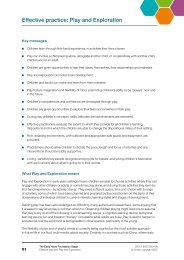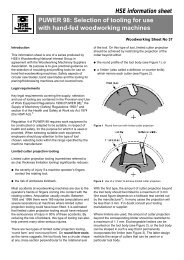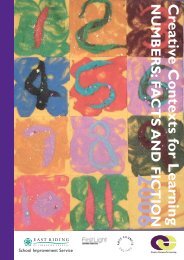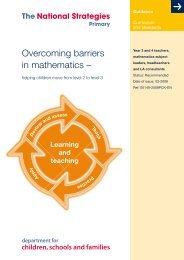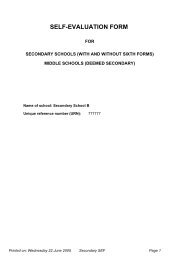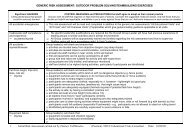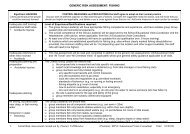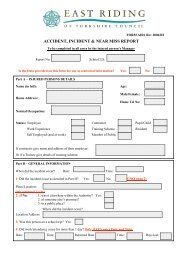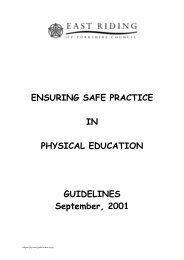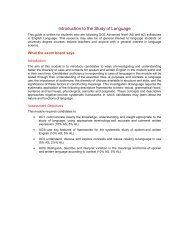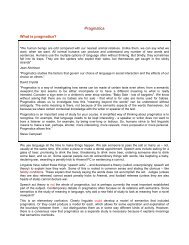Listening to Young Children - Northamptonshire County Council
Listening to Young Children - Northamptonshire County Council
Listening to Young Children - Northamptonshire County Council
You also want an ePaper? Increase the reach of your titles
YUMPU automatically turns print PDFs into web optimized ePapers that Google loves.
1<br />
UN Convention of the Rights of the Child, Article 12<br />
2<br />
The <strong>Children</strong>’s Plan: Building brighter futures–Summary pp 4<br />
www.dcsf.uk/publications/childrensplan<br />
3<br />
EYFS September 2008<br />
4<br />
SEF September 2008 tbc<br />
Legal Duty<br />
A brief outline as <strong>to</strong> why we<br />
should listen <strong>to</strong> young children.<br />
The law requires that children are<br />
included in decisions that affect<br />
them <strong>to</strong> ensure that their needs<br />
are paramount.<br />
There is a legal duty <strong>to</strong> consult with<br />
children contained within many<br />
different pieces of legislation, the<br />
following are perhaps the most<br />
relevant and recent examples:<br />
• The <strong>Children</strong> Act (2004) requires early<br />
years and childcare settings <strong>to</strong><br />
promote anti-discrimina<strong>to</strong>ry practice<br />
within all their work, and requires all<br />
adults working with children <strong>to</strong><br />
promote their needs with paramount<br />
importance;<br />
• <strong>Children</strong>’s rights <strong>to</strong> be involved in the<br />
decisions that affect them are<br />
identified in the UN Convention on<br />
the Rights of the Child – ratified by<br />
the UK in 1991 1 ;<br />
• The <strong>Children</strong>’s Plan (first published<br />
by the Department for <strong>Children</strong>,<br />
Schools and Families in 2007) states<br />
that services for children and young<br />
people “need <strong>to</strong> be shaped by and<br />
responsive <strong>to</strong> children, young people<br />
and families” 2 ;<br />
• The Early Years Foundation Stage<br />
(EYFS) is the framework that enables<br />
young children <strong>to</strong> achieve the five<br />
Every Child Matters outcomes. It sets<br />
standards for: the learning,<br />
development and care young<br />
children should experience; equality<br />
of opportunity and antidiscrimina<strong>to</strong>ry<br />
practice; partnership<br />
working; improving quality and<br />
consistency; and lays a secure<br />
foundation for future learning;<br />
• OFSTED’s Self Evaluation Framework<br />
is the mechanism by which<br />
registered providers, delivering the<br />
EYFS, consider and regularly record<br />
how they create, maintain and<br />
improve their settings. This is<br />
achieved through reflection and<br />
should also include the views of<br />
children, staff and parents.<br />
03



